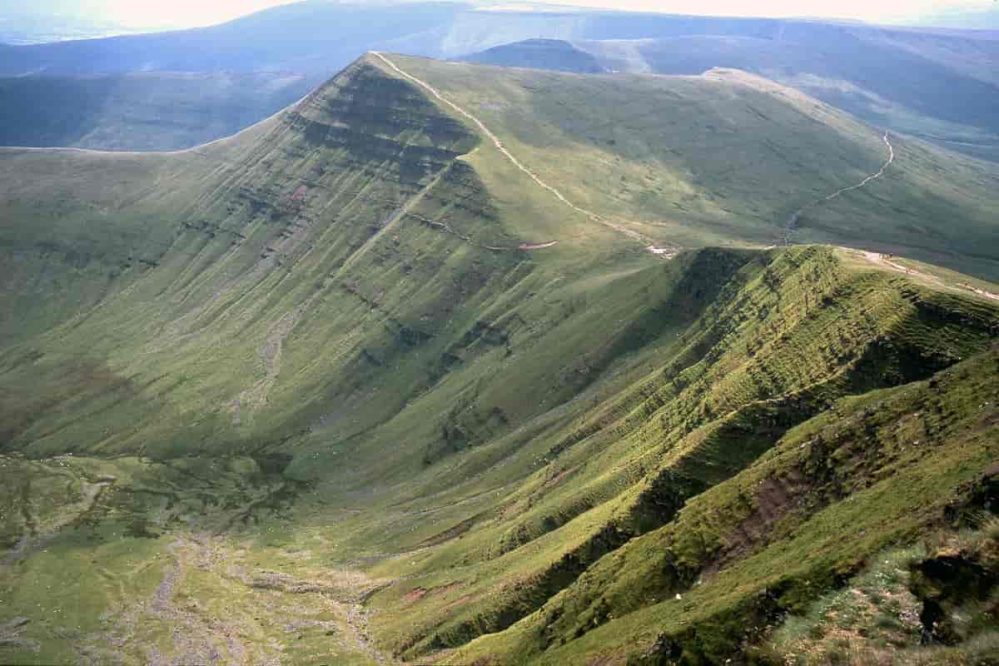Education
Professor highlights achievement gap
AN EDUCATION advisor has accused Welsh Government education initiatives of failing, as he says a huge gap has developed between poor and well off areas in Wales.
The issue was investigated in a BBC programme this week, with Professor Egan saying: “There is a huge gap between those parts of Wales where deprivation is at a high level and those parts of Wales where that’s not the case. There’s a significant gap and we’re not narrowing that gap at the moment. It’s a particular concern in some areas of Wales – not just the Valleys. We’ve just kept on bolting on one initiative after another and we’re now beginning to see that that’s been a significant problem. We didn’t have an implementation plan that avoided just having another initiative, another policy, something else. And so the clarity, as it were, was lost.”
The programme exposed 5 areas of Wales that consistently scored the lowest results in last year’s english language reading and numeracy tests: Blaenau Gwent, Caerphilly, Merthyr Tydfil, Rhondda Cynon Taf and Torfaen. In a 2010 in a National Survey of Adult Skills in Wales it was shown that in excess of 900,000 people have maths skills equivalent to year 5 and 6 primary school pupils. Indeed, in Blaenau Gwent, Wales’ worst performing area, more than 27% of the adult population were shown in a UK Government 2011 census to have no qualifications whatsoever.
Commenting on this was a Welsh Government spokesperson, who said: “We are making important progress in closing the attainment gap between those young people from deprived backgrounds and the rest of the school population. The latest figures show that the performance of Free School Meal pupils has improved at all levels and we have reduced the gap in attainment between these pupils and their counterparts at the Foundation Phase as well as, Key Stage 2 and Key Stage 3. Whilst we very much welcome this progress, we have more work to do. Our National Literacy and Numeracy Framework is designed to help teachers embed literacy and numeracy into all subjects for learners aged 5 to 14; our Schools Challenge Cymru programme is seeing 40 of our most challenged schools being supported by up to £20m of additional funding and the Pupil Deprivation Grant is being raised to £1,150 by 2016. We have also recently published Professor Graham Donaldson’s ‘Successful Futures’ report which proposes a set of radical and exciting proposals for a new curriculum in Wales.”
From the leading teaching union, Owen Hathway, NUT Cymru Policy Officer, said: “We know that there has been historic challenges facing schools in the most deprived communities in Wales, none more so than the funding problems they face. There are serious issues in education attainment there that are increasingly more difficult to tackle at a time of shrinking budgets. It is possibly a case that there has been numerous initiatives, many of which are well meaning and important, but perhaps do not work as part of an overarching vision. That was one criticism of the education system in Wales that came out of the OECD report. Closing the attainment gap between our most deprived areas and others is a complex issue that simply won’t have a magic bullet solution. It is very much the case that this is a community and society issue not simply and education one. However there is no doubt that teachers working in those schools are working above and beyond expectations to try and ensure that all pupils, regardless of their backgrounds, have the best opportunity to fulfil their potentials.”
Also commenting on these statistics was Mid and West AM, and Shadow Minister for Education, Simon Thomas, who stated: “Plaid believes closing the gap between economically disadvantaged children and the better-off should be a priority for the Welsh Government. The gap at GCSE increased between 2013 and 2014 and now stands at 33.8 percentage points. International reports have identified the problems and it is now up to the Welsh Government to deliver on solutions. The Labour party has failed in its attempts to raise educational standards in Wales.”
Education
Senedd shoots down outdoor education bill

MEMBERS of the Senedd rejected calls to establish a legal requirement for residential outdoor education opportunities for children and young people in Wales’ schools.
The Senedd narrowly voted against the general principles of the residential outdoor education bill, which was introduced by the Conservatives’ Sam Rowlands.
Mr Rowlands said his bill would remove a postcode lottery in terms of access to residential outdoor education, so no child misses out due to their personal circumstances.
He explained that the bill would create an entitlement for all pupils in maintained schools to experience at least four nights of residential outdoor education free of charge.
The North Wales MS argued the bill would have a long-term net positive economic impact.
He warned: “Outdoor education residentials are valued by children, parents and teachers alike, yet, for those without the means to access them, they are, in fact, unattainable.
“I believe this is fundamentally wrong and this bill sets out to remove those financial barriers to participating in what can be life-changing experiences.”
Mr Rowlands, a former Conwy council leader, said the bill would support the long-term physical and mental health of young people.
Labour’s Buffy Williams outlined the education committee’s stage-one report on the bill, which raised concerns about some children and young people being excluded.
The newly elected committee chair pointed to the example of education other than at school, such as pupil referral units or those who are homeschooled.
Peredur Owen Griffiths, who chairs the finance committee, said the bill would require significant funding against a backdrop of Welsh Government budgetary pressures.
An impact assessment found the bill would cost between £74m and £96m over five years.
Sarah Murphy, the Labour MS for Bridgend, raised the legislation committee’s concerns about the lack of a definition of residential outdoor education in the bill.
Ms Murphy, who was elected chair in a knife-edge 28-29 vote on Tuesday, warned that the bill does not provide an appropriate mechanism for pupils to opt out.
Peter Fox said Monmouthshire council prioritised access to outdoor education while neighbouring councils withdrew support to make efficiency savings.
The former council leader said: “We rationalised our provision and maintained the offer, as we had seen the benefits of children for decades.”
Mr Fox told the chamber it is a sad indictment that the Senedd does not enable backbench legislation to progress, with no opposition bills agreed since 2016.
The Monmouth MS said: “Why don’t we allow these things to progress and see where they go? And if you can’t find a way through that, then things can be stopped in the future.
“Why always stop legislation before it has an opportunity to progress, to breathe and to really show what it has the potential to do?”
Heledd Fychan, Plaid Cymru’s shadow education secretary, backed the bill’s core aim of ensuring equal opportunity for every child.
However, she highlighted the huge pressures already on school staff who often volunteer to help with residential outdoor education.
“They don’t receive any additional payment for this work,” she said. “They do it because they see the benefit for the children and young people in their care when they are in our schools.”
Carolyn Thomas, the Labour MS for North Wales, raised existing school budget pressures, with the bill estimated to cost about £20m a year to cover teachers, lodging and transport.
She said: “At a time when schools are having to face extremely difficult decisions, including redundancies, placing additional pressure on the education budget would be unthinkable.”
Lynne Neagle raised concerns about the capacity of the outdoor education sector to meet the bill’s requirements on the Welsh language and additional learning needs provision.
Wales’ new education secretary warned the bill would require additional changes to terms and conditions of school staff, which could hamper recruitment and retention.
Ms Neagle said education unions and councils have significant concerns about the potential impact on an already stretched financial situation facing schools.
She told the chamber the bill would bind the Welsh Government to expressly fund residential outdoor education over and above any other aspect of Wales’ new curriculum.
The Senedd voted 25-26 against the bill following the debate on April 17, with opposition members outnumbered by the Welsh Government and Labour backbenchers.
Education
Pupils take centre stage for dance competitions

MORE than 230 Pembrokeshire pupils have taken part in exciting dance competitions at primary and secondary school levels.
Sport Pembrokeshire hosted the primary school dance competition on March 19th at Fishguard Leisure Centre.
Seven schools from across the county and more than 160 pupils took part, including both boys and girls from school years 3-6.
All style and street dance were the categories that teams, solos and duos could enter. There were 55 solo performers entering the street dance solo category.
Pupils from Ysgol Bro Gwaun performed a group dance and some performed brilliant solos for the primary pupils to watch.
Finola (FF Dancers), Kelly (Kelly Williams School of Dance) and Lowri (Lowri Jones School of Dance) judged the high standard of competitions with dance coaches Lucy Kerrison and Kelci Francis helping out during the day.
They are all thanked for their help and expertise as putting on an event of this nature would not be possible without their valuable input.
Forty eight medals, 22 trophies and numerous certificates were presented, including awards for stand-out performers.
The atmosphere was great and it was brilliant to see the pupils taking part, getting creative and showcasing their skills, all with a smile on their faces.
The secondary schools dance competition was hosted on Thursday, 29th February at Haverfordwest Leisure Centre.
In total 77 girls from school years 7-11 competed in various categories such as teams, duos and solos. These included street, all style, freestyle, jazz and cheer.
Finola and Kelly judged the day with the help from Lucy and Kelci. Kelci, a former Ysgol Harri Tudur pupil, also gave showstopping performances.
It was a great day with a fantastic atmosphere and very rewarding to see so many girls taking part in sport and enjoying every minute.
Some of the schools who attended are now through to the UDOIT Dance Competition in Cardiff.
Hundreds of pupils have enjoyed school dance competitions over recent weeks.
Education
Second Pembrokeshire Chess Tournament celebrates youth and skill

THE SECOND Pembrokeshire Chess Tournament drew participants from 21 schools across the region, culminating in a day of intense competition and camaraderie.
The tournament, reported by Vicky Brown, saw young chess enthusiasts gather for a day marked by strategic gameplay and exceptional talent. Henry Burton from Redhill emerged victorious, claiming the top spot in a closely contested field. The duo of Steffan Hughes and Huw Holliday, also from Redhill, followed closely in second place, while Osian Griffiths (Ysgol Caer Elen), Bryn Williams (Milford Haven Community School), and Iolo Hughes (Redhill) shared the third place, showcasing the depth of talent present among the participants.
In recognition of outstanding sportsmanship, Carys Callan from Redhill was honoured with the ‘David Pinch Award’, embodying the spirit of fair play and respect that marked the tournament. A special mention was given to Tyler Davison-Hall from Johnston CP School for participating in the Game of the Tournament, further highlighting the event’s competitive yet friendly atmosphere.
The tournament benefitted significantly from the expertise of Ian Eustis from the Welsh Chess Union, who served as Arbiter, ensuring the smooth running of the games. The event was also supported by Martin Jones and Scott Hammett, who took on the roles of stewards, and the Friends of Redhill (FOR), who managed the refreshments, contributing to the day’s success.
The local chess community, including participants and spectators, expressed their appreciation for the organisational efforts that made the event possible. For those interested in furthering their chess skills, the Pembrokeshire Chess Club extends an invitation to meet on Tuesday evenings in Steynton. Martin Jones, contactable at 07884384131, is available for further details regarding membership and participation.
Looking ahead, Redhill is poised to host its next chess tournament on Saturday, 8th June, promising another opportunity for young chess players to demonstrate their skills and passion for the game. The success of this event not only highlights the thriving chess scene in Pembrokeshire but also sets the stage for future tournaments that continue to inspire and engage the youth in the noble game of chess.

-

 Business3 days ago
Business3 days agoBluestone National Park Resort payments expected to end
-

 Community5 days ago
Community5 days agoThe Harbourmaster: Special rail excursion draws crowds to Milford Haven
-

 News4 days ago
News4 days agoDragon LNG ‘monitoring’ scrap car blaze in Waterston
-

 News5 days ago
News5 days agoSearch for Luke, 19, reported missing in the Pembroke Dock area, continuing
-

 News2 days ago
News2 days agoSearch for missing teenager Luke continues at Pembroke Dock
-

 Crime3 days ago
Crime3 days agoEstate agents admit health and safety failings following fatal market incident
-

 News6 days ago
News6 days agoMajor search in the area of The Cleddau Bridge and Hobbs Point
-

 News2 days ago
News2 days agoMan jailed after scarring police officer in Narberth altercation























